Ka Mahina ʻOlelo Hawaiʻi: Build Your Hawaiian Vocabulary for Real Estate
Ten years ago, in 2012, an amendment to the Hawaii Revised Statutes declared February as Hawaiian Language Month, Ka Mahina ʻŌlelo Hawaiʻi (my apologies to native speakers for the lack of ʻokina and kahakō in our blog keyboard- I swear I type them in and they just donʻt publish).
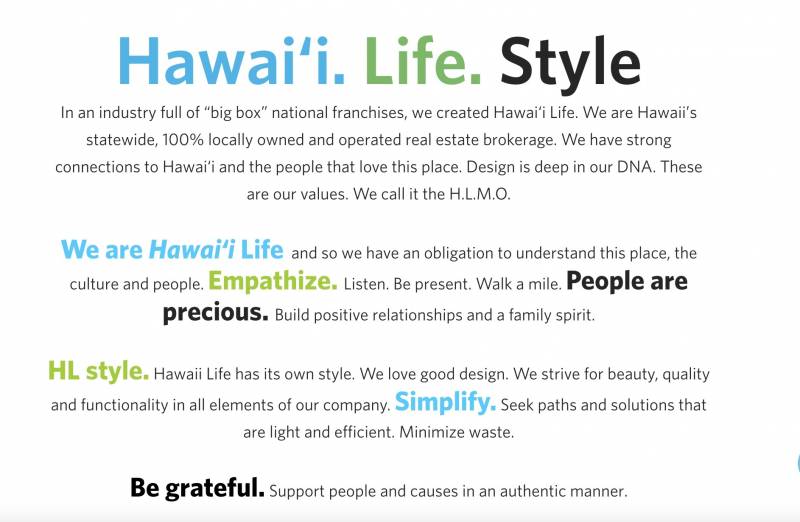
As a locally-owned business, Hawaiʻi Life has always had as the first guiding principle in its values statement (a portion of it shown above), “we have an obligation to understand this place, the culture and people.” I would add that it is impossible to live this value without acknowledging that using English language as our medium limits our ability to truly understand the people, culture and place of Hawaiʻi.
Whether you are a long time resident, a recent arrival, a reader just considering a home in Hawaiʻi, or a colleague in the real estate industry, will you join me in a commitment to start learning, or to improve, your ʻōlelo Hawaiʻi this month?
Build Your Vocabulary During Your Search for a Home in Hawaiʻi
I have already written about the importance of place names, and encouraged newcomers to Hawaiʻi (and the real estate professionals facilitating their search) to learn proper pronunciation and the meaning of the names of your street and the town or development in which you reside.
In that earlier blog post I also offered some of my own learning strategies, which reminded me of yet another learning strategy. Years ago I took a job in Brazil, and my time there began with three weeks of Portuguese immersion. The teachers designed a program in which we engaged in activities I enjoy, and learned vocabulary that way. We went to an art museum, and I learned colors. We went to an exercise class and I learned the names of body parts. Our shared interest in this blog is real estate…so letʻs start there.
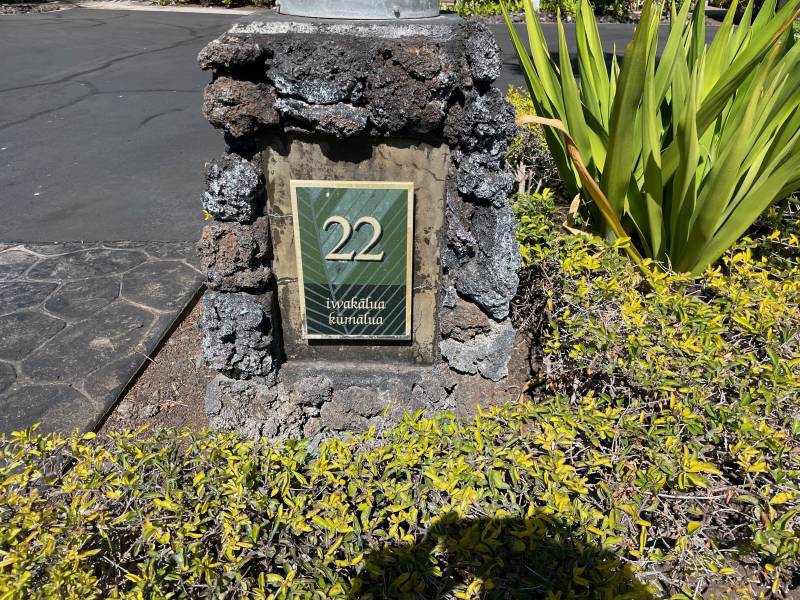
Own or rent at Haliʻi Kai at Waikoloa Beach Resort? You could learn to count from 1 to 24 looking at the building numbers.
Letʻs say you are meeting an agent to look at a listing. The address is on Akoni Pule Highway. Rather than tell you the driveway is on the north or south or east or west side of the street…or even left or right since you might be coming from a different direction…your agent will likely use the words makai or mauka. Ma is one of two words indicating at or to. Hence makai means “in the direction of the ocean” and mauka means “in the inland or upland direction.”
Listings will likely describe the porch or balcony as a lanai. Guest quarters or mother-in-law suite might be referred to as an ʻohana , meaning “family” — a term used frequently although ʻohana dwelling has a technical meaning in the Hawaii County code.
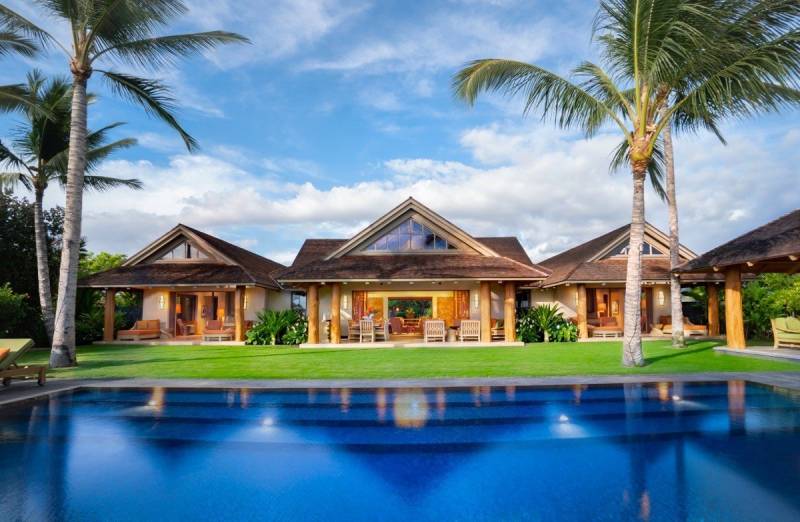
This Kohanaiki home by Zak Architecture and Douglas Durkin Design illustrates ʻohiʻa posts and pūneʻe on the lanai.
How about learning Hawaiian words for furnishings or landscape plants that give a sense of place? If you see a daybed on the lanai your agent might refer to it as a pūneʻe. Perhaps the roof over the lanai is supported by ʻohiʻa posts, or you are lucky enough to enjoy ʻohiʻa lehua blossoms in your yard.
What Vocabulary Reveals About Hawaiian Sense of Place
You may have noticed that so far I have not given vocabulary for words like “real estate” or “property,” all those common terms in the domain of moving to and living in Hawaiʻi. Thatʻs because…those words simply do not translate. Allow me to unpack that statement a bit to see if you can get a better sense of how Hawaiian language and thinking relate to the places we live.
Letʻs start with words you will hear frequently. You may already have learned that hale is the word for a building, a house or other structure. Maybe you have heard home in the words of a song — spelled like the English “home” and pronounced ho-may. Perhaps you have seen the phrases aloha ʻāina or mālama ʻāina (or the more grammatically correct mālama i ka ʻāina) and so know that ʻāina means “land.”
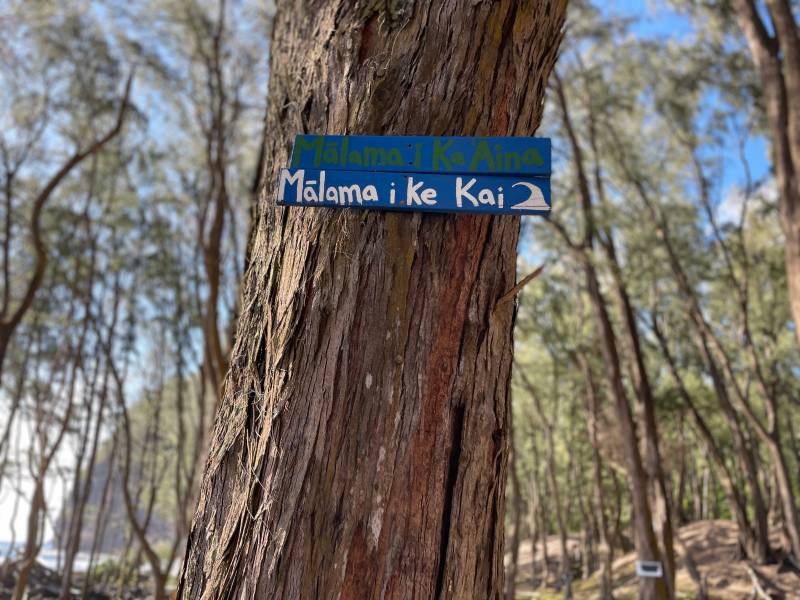
With those vocabulary words we have the idea of people living in a structure, having that warm feeling that makes a house or place your home, and land as a concept as opposed to, say, ocean. And yet none of those terms indicate something that can be transacted, bought and sold.
ʻŌlelo Hawaiʻi can be used in legal documents in Hawaiʻi, and when you review the legal description on your title report you will often find plenty of words in ʻōlelo Hawaiʻi. But you will not find “real estate” in the dictionary. At all. The words you will find in the Hawaiian dictionary for “property” are not specifically referring to real estate; they are more indicative of personal property, assets, wealth.
And yet the idea of privately owned real property is not new in Hawaiʻi. The Constitution of 1840, which established Hawaiʻi as a constitutional monarchy, first established allodial title property rights, and was followed by the division of lands known as the Mahele in 1848. It is hard for us as modern day people to appreciate that the context for adopting then-new thinking about land and its ownership was a cultural, language-based framework of reciprocal relationship to land in which people steward (mālama) and the land feeds (the literal meaning of ‘āina).
In other words, in English and law we talk about real estate in terms of “property rights”…whereas indigenous people tend to think of land and place in terms of responsibility. The vocabulary word for that is kuleana – and I hope as a newcomer or property owner in Hawaiʻi you will embrace the idea of having shared responsibility for the place you call home.
Continuing your Journey with ʻŌlelo Hawaiʻi
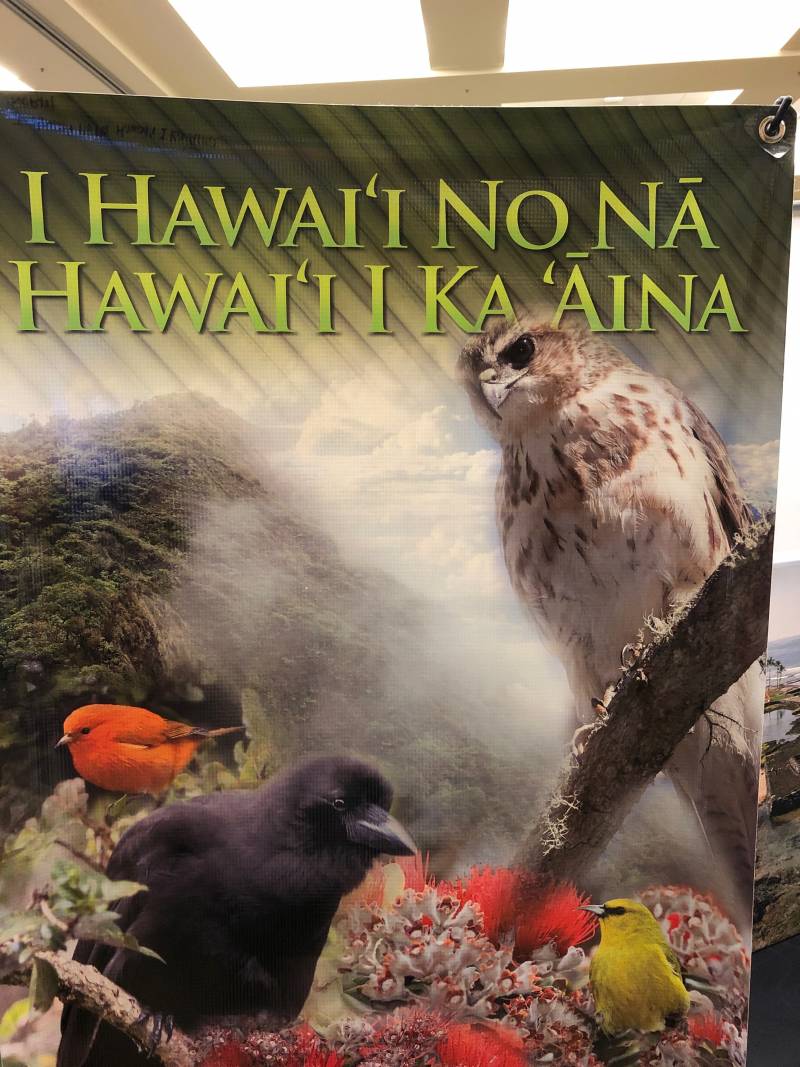
I would also encourage you to continue to learn vocabulary as you make Hawaiʻi your home. Buy the Pukui-Elbert Hawaiian Dictionary, and the companion book Place Names of Hawaiʻi and look words and names up when you encounter them. You can also bookmark this online dictionary.
In writing this article I spent a lot of time with my dictionary and came across a wonderful phrase for describing my “property” when what I mean is both my house and the land I steward. Kīnana hale. Go ahead, look it up. For those of you who know me, it kind of fits.

Leave your opinion here. Please be nice. Your Email address will be kept private, this form is secure and we never spam you.